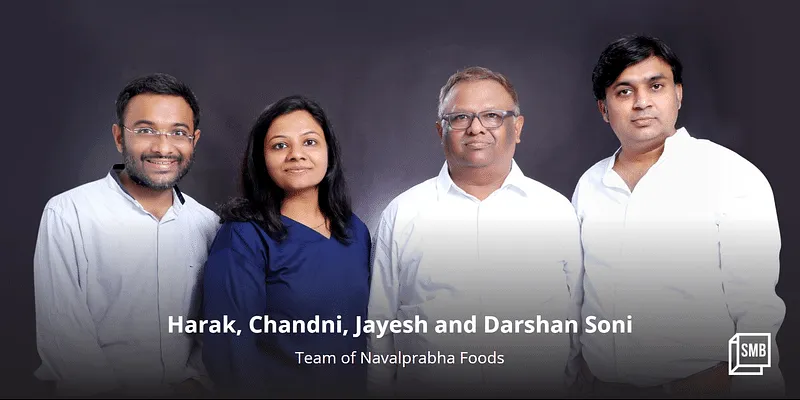A masterclass in startup-building
That’s a trait stitched into the ‘professional’ hat he wears at Delhivery, enabling him to make decisions and execute fast as the logistics company hurtles towards its next big milestones following its recent IPO.
Hello Reader,
We have a new President!
Droupadi Murmu, a tribal leader from Odisha, has been elected as the 15th President of India. The 64-year-old becomes the first tribal president of the country, as well as the second woman to hold India’s highest office after Pratibha Patil.
In other news, the James Webb Space Telescope’s exploration of the universe continues. Now, the JWST has found the “oldest” galaxy. GLASS-z13, dating to 300 million years after the Big Bang, dethrones the GN-Z11, which was spotted by the Hubble Space Telescope, by about 100 million years.
Meanwhile, what even is unique anymore? After making sure every social media platform has a way to feature “stories”—posts that last for a maximum of 24 hours—platforms are now busy getting on the avatar bandwagon.
Meta, which released its own set of 3D avatars for Facebook, Messenger, and Instagram, is reportedly working to release avatars on WhatsApp that can not only help mask yourself during video calls but also as stickers…
The other feature in the works is the ability to hide your online status, or at least customise who sees you online.
Another way to read a message and pretend you haven’t. Who doesn’t love that?
Sandeep Barasia on startup building
In an industry where passion and purpose are high-resonance tenets, alongside hustle, of course, Sandeep Barasia’s superpower might well be his ability to be dispassionate.
That’s a trait stitched into the ‘professional’ hat he wears at , enabling him to make decisions and execute fast as the logistics company hurtles towards its next big milestones following its recent IPO.
Sandeep has a front-row view of this rapid and continuing growth as the Managing Director and Chief Business Officer at Delhivery.
Lessons for life:
- Going public is not necessarily the end-game for a company. It’s a way of generating resources, it’s a way of getting public scrutiny, it’s an acquisition currency, and it’s a way of rewarding employees.
- Scale will get you profitability in the end. But the gross margin has to be possible even at the very early and fundamental levels of the business.
- Growth without profitability is not going to be sustainable. You can’t grow at all costs. And for high growth to happen, there has to be a high market opportunity.

Inside Amazon’s Prime Day
A week after hosted its Prime Day sale in the US and 15 other countries, India and a group of other Middle East and North Africa (MENA) countries will follow suit on July 23 and 24.
The ecommerce giant, which claims to have over 200 million Prime customers worldwide, might see muted activity due to inflation and curbs on discretionary spending by customers, according to industry experts.
However, the annual sale event by Amazon registered GMV sales of nearly $12 billion globally this year, a 7.7 percent jump from 2021, according to reports for the US and other markets where it has concluded. The event clocked GMV sales of $11.9 billion in 2021.
What to expect:
- For the Indian market, Amazon expects to replicate its success even as the global event’s growth reportedly stalled in 2021, compared to the boom in 2020.
- According to Akshay Sahi, Director, Prime and Delivery Experience at Amazon India, the number of Prime members is also set to increase as part of the sale event.
- Arvind Singhal, Chairman and Managing Director, Technopak Advisors, said while sales will continue to see an uptick, seasonality continues to play a major role.
“Typically, the festive quarter accounts for 25 percent of annual sales for all retailers, including online marketplaces. In India, the numbers can go as high as 40 percent, owing to the wedding season, in addition to festivities,” says Arvind.

Akshay Sahi, Director - Prime and Delivery Experience, Amazon India
A dark ‘kitchen’ for D2C
In the mid-1980s, Harak Soni’s father, Jayesh Soni, and his grandfather, Narayanji Soni, decided to help his aunt, Meena Soni, with a homemade premix for khaman dhokla, which she could take back to the US.
Soon enough, the premix did not just help with his aunt’s cravings for Indian food but it also became widely popular, especially among the Indian diaspora, says Harak, the director of Navalprabha Foods.
In 1988, the Soni family set up a 1,000-sq-feet manufacturing unit and launched in Jalgaon, Maharashtra, with a capital investment of Rs 7,000.
Key takeaways:
- The white label manufacturer’s portfolio includes premixes for dhokla, gulab jamun, idli, dosa, vada, ice cream, cakes, and flavoured cashews and millets.
- The company has invested Rs 4.3 crore in a facility in Jalgaon exclusively for manufacturing products for D2C brands. It has begun manufacturing, and the food startups that are on board are Snackible, Oui, and Govaa Bazaar.
- Going forward, it wants to become a contract manufacturer for direct-to-consumer (D2C) brands.

Now get the Daily Capsule in your inbox. Subscribe to our newsletter today!







